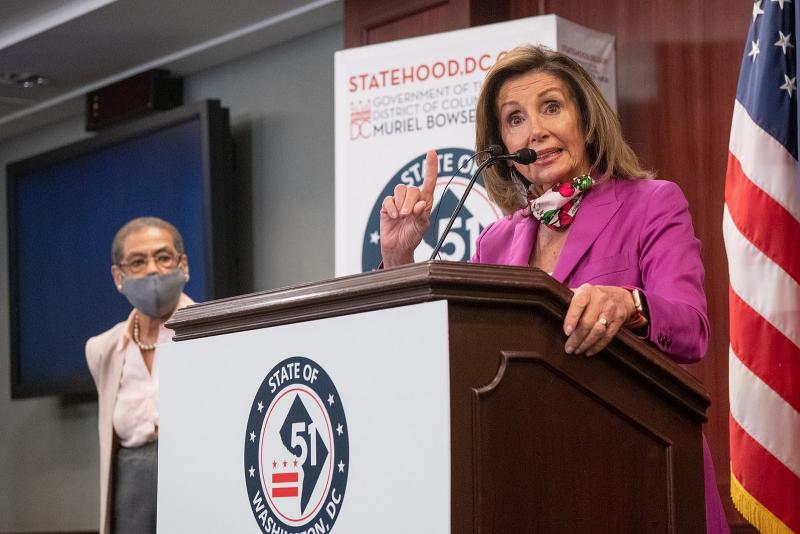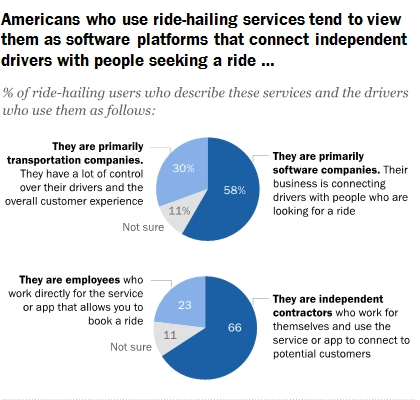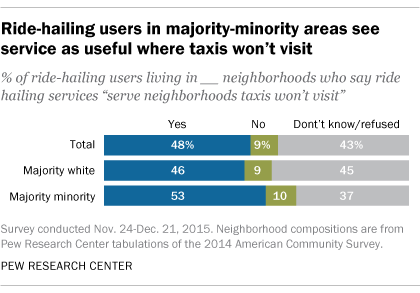
Americans for Tax Reform opposes H.R. 1082, Sami’s Law:
This Nancy Pelosi-driven bill is part of the Left’s government-wide, full-court press against Americans working as independent contractors. Pelosi hopes to ram the bill through the House immediately without hearings or scrutiny.
H.R. 1082 would give Washington D.C. more power by imposing federal government regulation of Americans who use or provide ridesharing services. Ridesharing is already heavily regulated by state and local governments. This bill is a federal intrusion into ridesharing and comes with heavy-handed mandates and enforcement mechanisms from Washington.
The author of H.R. 1082 is a New Jersey congressman tight with labor union bosses. He even voted to ban Right to Work and voted to impose California-style restrictions on independent contractors and freelancers. Rep. Chris Smith voted for the top priority of union bosses called the PRO Act which declares war on the tens of millions of Americans working as freelancers and independent contractors. It would impose on a national level the same independent-contractor destroying scheme imposed by California Democrats — AB 5 — which destroyed the livelihood of countless California households. President Joe Biden and Vice President Kamala Harris have also endorsed the PRO Act, which imposes a national ban on Right to Work states. 166 million Americans live in the 27 Right to Work states.
H.R. 1082 will create a new 17-member federal regulatory commission that the Biden administration will stack with anti-independent contractor personnel. Democrats want to take away the independent contractor status of rideshare drivers and force them to become employees with a union-dues-collecting boss. They will use the commission — under the guise of safety — to regulate independent contractor drivers out of existence.
The Biden administration will fill the commission with heavy-handed central planners who will ensure states cannot compete with each other. H.R. 1082 will impose the equivalent of a taxi commission on a national scale to specifically saddle ridesharing with one-size-fits-all regulations. Ridesharing emerged in the first place because Americans were desperate to find an alternative to the innovation-stifling taxi commissions and entrenched taxi industry players who provided bad service at excessive cost. The bill would also allow the Biden administration to detail to the new commission — at taxpayer expense — an unlimited quantity of bureaucrats and political appointees from Biden’s Department of Transportation.
Democrats will move to impose vehicle inspection mandates on states and withhold highway funds for states which do not impose a vehicle inspection regime. Democrats have already written down their next step: force states to impose a vehicle inspection regime. If states fail to comply, Washington will cut off 2.5% of their highway funds. This provision was spelled out in a version of the bill put forth by Sen. Ben Cardin (D – Md.) during the last congress.
The private sector has already developed extensive ridesharing safety features. Ridesharing services have voluntarily and proactively developed a variety of safety features for riders and drivers, including but not limited to the name and photo of the driver, the make, model, and color of the vehicle, the license plate number, as well as the ability for riders to share their realtime trip status with family and friends who can see their exact location and time of arrival.
The bill runs counter to Americans of all political stripes who widely recognize rideshare drivers as independent contractors. By a 3-1 ratio, Americans consider rideshare drivers to be independent contractors and not employees, according to a landmark Pew Research Center survey. The survey found that most Americans who were aware of the regulatory debate do not consider rideshare drivers to be employees, and believe the government should use a light regulatory touch in this area of the economy. As noted by Pew, “the clear preference for a light regulatory approach among partisans in all camps is striking.” And as mentioned previously in this post, ridesharing is already regulated by state and local governments.
Pew also found that most recognize rideshare apps as software companies that connect drivers with people looking for a ride.
Here are the Pew Research graphs showing these two results:

Federal regulation of ridesharing could hinder America’s recovery from the pandemic. Between work, family, and school commitments, households and neighborhoods benefit from the flexibility afforded by ridesharing. And by a 5:1 ratio, the Pew survey found that residents of majority-minority neighborhoods say rideshare services “serve neighborhoods taxis won’t visit.” The study notes: “Ride-hailing services are seen by minorities as a benefit to areas underserved by taxis.”
Below is a graph displaying these results.

The convenience and non-discriminatory nature of ridesharing has provided another form of mobility to communities otherwise left unserved. This factor will become even more important as Americans recover from the pandemic. Members of Congress should steer clear of H.R. 1082.

